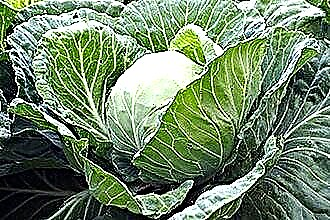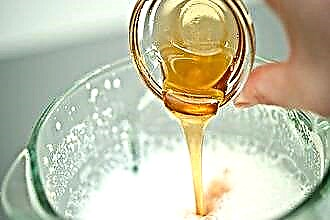Reducing the reactivity of the body during pregnancy is a natural defense reaction that prevents the rejection of the fetus in the early stages of gestation. For this reason, the risk of developing infectious diseases in women increases at least 3 times. A throat compress during pregnancy is a safe alternative to medications, most of which can negatively affect the intrauterine development of the baby.
The use of antiviral and antibacterial drugs during gestation can cause pathologies in the unborn child. The components of 90% of medicines penetrate deeply into the tissues and reach the placenta with the blood stream. Intoxication of an unformed child's body can lead to a change in the morphological and functional characteristics of tissues. Local therapy prevents the development of pathologies in the fetus at the stage of laying vital organs and systems.
How do compresses work?
 Local therapy of ENT diseases can prevent the spread of infectious flora in the mucous membranes of the throat. Putting warming compresses on a sore throat stimulates the production of neutrophilic granulocytes in the body. "Kamikaze cells" quickly identify foreign agents in the foci of inflammation, after which they absorb and break them down inside themselves, and then die.
Local therapy of ENT diseases can prevent the spread of infectious flora in the mucous membranes of the throat. Putting warming compresses on a sore throat stimulates the production of neutrophilic granulocytes in the body. "Kamikaze cells" quickly identify foreign agents in the foci of inflammation, after which they absorb and break them down inside themselves, and then die.
Warming compresses are local immunostimulants that enhance the protective function of the body.
Warming up tissues promotes reflex expansion of blood vessels in the affected tissues. This leads to greater blood filling of the mucous membranes and the restoration of the trophism of the ciliated epithelium. Intensive nutrition of cells with oxygen and nutrients stimulates regeneration processes, which leads to epithelialization of the mucous membranes of the throat. Restoring the integrity of the ciliated epithelium has a beneficial effect on tissue reactivity, thereby accelerating the regression of pathological processes.
Procedure safety
Is it possible to apply medicated throat bandages during pregnancy? Physiotherapy is one of the safest methods of treating infectious diseases in women during gestation. Synthetic potent drugs are categorically not recommended for use in the 1st and 2nd trimester of pregnancy. The active components of drugs quickly cross the placental barrier and enter the fetal bloodstream. This can lead to a violation of physiological development, which is fraught with brain pathologies, heart defects, malfunctions of the nervous system, etc.
It should be noted that before using warming compresses, you need to consult with a specialist. The abuse of alcohol applications increases blood pressure and, accordingly, the tone of the uterus. This can lead to miscarriage or pregnancy fading. For this reason, when applying a medical bandage, medical alcohol must be diluted with water in order to mitigate its local irritant effect.
Therapeutic properties of the compress
 Physiotherapy treatment can alleviate the symptoms of ENT diseases, but cannot guarantee the destruction of absolutely all pathogens in the foci of inflammation. For this reason, herbal medicines must be included in the scheme of complex treatment of infections. They have pronounced anti-inflammatory, antibacterial or antiviral properties, but they are not absorbed into the bloodstream.
Physiotherapy treatment can alleviate the symptoms of ENT diseases, but cannot guarantee the destruction of absolutely all pathogens in the foci of inflammation. For this reason, herbal medicines must be included in the scheme of complex treatment of infections. They have pronounced anti-inflammatory, antibacterial or antiviral properties, but they are not absorbed into the bloodstream.
Wet compresses with a warming effect enhance the therapeutic effect of medications and increase local immunity. The main medicinal properties of local therapy include:
- resorption of infiltrates in the mucous membranes;
- elimination of hypertrophy of the palatine tonsils;
- improvement of blood microcirculation in lesions;
- relief of discomfort;
- elimination of inflammatory processes;
- reducing the edema of the ciliated epithelium;
- suppression of the reproductive function of bacteria and viruses.
It is not recommended to use warming applications at the stage of progression of purulent sore throat.
It should be understood that heating the tissues during the period of exacerbation of catarrhal and purulent processes can aggravate the state of health. A local increase in temperature in foci of purulent inflammation stimulates the activity of pathogens, which is fraught with generalization of pathological processes and the development of severe complications.
Compress rules
The effectiveness of physiotherapy is determined by the correct application of a warming bandage and the regularity of the procedures. To speed up the healing process and stop inflammation in the throat, the following rules must be taken into account:
- as the basis for the warming layer of the applique, you can use cotton fabric or gauze folded in several layers;
- the liquid for impregnating the compress is taken only at room temperature;
- after wetting, the gauze is squeezed out and applied to the sore throat;
- an insulating layer is placed on top of the base - polyethylene, cellophane, kraft paper, etc.;
- insulate the warming bandage with a layer of cotton wool, a woolen scarf or fleece fabric;
- compresses for the whole night are fixed with a regular bandage or scarf;
- after applying the dressing, the thyroid area should remain open.
If the composition of the warming solution for the compress contains components of a local irritating effect, the skin must be treated with petroleum jelly or baby cream before applying the bandage. This is to prevent the occurrence of hyperemia and burns on the skin.
Duration of therapy
 The duration of the physiotherapy course of treatment depends on the type of ENT disease, the prevalence of inflammation and the patient's well-being. For example, tonsillitis is a recurrent disease. To prevent re-inflammation of the mucous membranes of the throat, therapy is continued for 5-6 days after the disappearance of the main symptoms of the pathology.
The duration of the physiotherapy course of treatment depends on the type of ENT disease, the prevalence of inflammation and the patient's well-being. For example, tonsillitis is a recurrent disease. To prevent re-inflammation of the mucous membranes of the throat, therapy is continued for 5-6 days after the disappearance of the main symptoms of the pathology.
The effectiveness of heat therapy also depends on the duration of each specific session of warming up the inflamed tissues. Taking into account the recommendations below, you can accelerate the regression of inflammatory processes and, accordingly, recovery:
- the medical dressing is left for exposure for 4-5 hours;
- hot compresses can be placed on the throat for only 10-15 minutes;
- 2-3 procedures are recommended per day;
- after removing the bandage, you need to warm your throat with a warm scarf;
- you must not go outside for 2-3 hours after therapy.
Too tight a bandage interferes with blood circulation in the tissues, which leads to an increase in the swelling of the throat mucosa.
After intensive warming up of the throat, it is undesirable to ventilate the room or go outside. A sharp temperature drop leads to a narrowing of blood vessels, a violation of tissue trophism and a decrease in local immunity.
Alcohol applications
Undiluted rubbing alcohol is not recommended due to the risk of skin burns. For the treatment of throat in pregnant women, 90% alcohol is diluted with boiled water in a ratio of 1: 3. Warming up the mucous membranes of the oropharynx will accelerate the resorption of foci of inflammation and contribute to the restoration of the secretory function of the ciliated epithelium. In other words, alcohol applications help not only eliminate inflammation, but also make the cough productive.
Hyperthermia is one of the main contraindications for the use of warming dressings.
Compresses with medical alcohol are advisable to use for the treatment of laryngitis, tonsillitis, tracheitis and pharyngitis at the stage of resolving catarrhal processes. Consult a physician before using the warming solution. The use of warming compresses is not recommended for patients with hypertension, which is associated with a possible increase in blood pressure.
Vodka applications
Is it possible to put a vodka compress on the throat during pregnancy? Unlike medical alcohol, vodka has a milder effect. It promotes reflex vasodilation, elimination of pain and swelling in the mucous membranes of the throat.
When applying a vodka compress, you need to pay attention to the following nuances:
- it is more advisable to use gauze as the main (warming) layer;
- a bandage soaked in vodka should be applied to the throat, previously treated with baby cream or petroleum jelly;
- the vodka compress is fixed with bandages and removed after 2 hours.
Do not use an alcohol-based bandage on your throat if you have skin diseases.
Alcohol is quickly absorbed into the bloodstream, so alcohol applications can be done no more than 2 times a day for a week. In case of deterioration of health, you need to stop treatment and seek help from a specialist.
Curd applications
Cottage cheese is a product rich in vitamins and amino acids that has antiphlogistic and antimicrobial properties. It does not cause adverse reactions and does not provoke the development of pathologies in the fetus in the early stages of pregnancy. Warming curd compresses can be used 3-4 times a day at any stage of pregnancy.
When applying a medical bandage, you should:
- heat 200 g of cottage cheese in the microwave;
- form a cake and wrap it in cheesecloth;
- put a compress on the throat and insulate with a scarf;
- after 4 hours, remove the bandage and remove the remnants of the product with warm water.
For therapeutic purposes, it is best to use high-fat homemade cottage cheese. It retains heat for a long time, which helps to prolong the therapeutic effect of the application.
Cabbage applications
Cabbage compress is an effective anti-inflammatory and antitussive agent that can be safely used in the treatment of ENT pathologies in pregnant women. Cabbage leaves contain phytonutrients, which have a pronounced antiphlogistic, wound healing and antioxidant effect. For medicinal purposes, white cabbage is used, which is due to the presence in its composition of the maximum amount of nutrients.
How to apply a compress?
 place a few kale leaves on your throat;
place a few kale leaves on your throat;- cover the main layer of the compress with plastic;
- fix the bandage with bandages or gauze;
- remove the bandage after 3 hours.
You can use grated cabbage as the basis for the compress. To enhance the effect of phytonutrients, add 2 tbsp. l. vegetable oil. The oil plays the role of a "conductor" that accelerates the penetration of active components of cabbage into the tissues affected by inflammation.
Honey applications
Honey is a product of anti-inflammatory, wound healing, antimicrobial and immunostimulating action. It contains vitamins, amino acids, trace elements and minerals that have a beneficial effect on cellular metabolism. Honey applications are recommended for prophylactic and therapeutic purposes to eliminate inflammation and detoxify the body.
The natural sorbent accelerates the elimination of toxic substances from the affected tissues, due to which the regeneration processes are normalized. Detoxification helps to eliminate most of the local manifestations of ENT pathology, which include inflammation, perspiration, pain, swelling, hyperemia, enlargement of the palatine tonsils, etc. You can enhance the medicinal properties of the product with aloe juice, which has antiseptic and decongestant properties.
Method of preparation and application of the compress:
- mix 30 ml of aloe juice with 100 ml of vodka;
- add 1 tbsp to the solution. honey;
- moisten gauze folded in 4 layers in the preparation;
- attach gauze to your throat and accelerate it with a film;
- put a layer of cotton wool on top of the compress;
- remove the bandage after 3-4 hours.
Local treatment is one of the safest treatments for infectious diseases. However, some compresses may contain highly allergenic components. To make sure that there are no undesirable reactions, before applying the dressing, treat a small area of the skin with the prepared solutions. In the absence of itching, hyperemia, swelling and erythematous spots, use the drug as directed.
Chamomile decoction applications
Medicinal chamomile is an effective antiphlogistic, antimicrobial and analgesic agent. The plant contains essential oils, tannins, phytosterols, flavonoids, ascorbic acid, alkaloids, bitterness, carotene, etc. Useful components help accelerate cellular metabolism and tissue reactivity, which greatly speeds up the healing process. Herbal infusions and decoctions do not contain alcohol, so they do not affect blood pressure, which is highly undesirable during pregnancy.
To prepare the compress you should:
- pour 3 tbsp. flowers ½ l of boiling water;
- boil the broth for 4-5 minutes;
- strain the liquid and moisten gauze in it;
- apply a damp cloth to the sides of the neck;
- cover the gauze with cellophane and a layer of cotton wool;
- remove the compress after 4-5 hours.
Medicinal chamomile practically does not cause side reactions, which is associated with the absence of locally irritating substances in the plant. To increase blood circulation in inflamed tissues, you can add 3-4 drops of essential oil to the broth. For therapeutic purposes, it is best to use peppermint, lemon, or sea buckthorn essential oils. They do not have a strong odor, so they do not cause nausea in women during gestation.
Contraindications
The use of warming compresses is not allowed for all types of ENT diseases. It is undesirable to warm up the throat at the stage of acute bacterial inflammation of the mucous membranes of the oropharynx. Warming up the throat with purulent sore throat and complicated colds only stimulates the reproduction of pathogens and, accordingly, the spread of infection.
It is not recommended to put compresses when:
 cardiovascular pathologies;
cardiovascular pathologies;- dermatitis and eczema;
- subfebrile and febrile fever;
- malignant tumors;
- neurological disorders;
- thrombophlebitis;
- bleeding tendency;
- active tuberculosis.
Treatment of ENT diseases in pregnant women is complicated by the choice of safe drugs that cannot harm the development of the fetus. Most medicines are quickly absorbed into the bloodstream and cross the placental barrier, which can lead to the development of pathologies in a child. To prevent complications, physical therapy is used to treat a sore throat, which includes the use of compresses. Warming dressings accelerate the regression of inflammation and increase local immunity, which contributes to a speedy recovery.

 Hyperthermia is one of the main contraindications for the use of warming dressings.
Hyperthermia is one of the main contraindications for the use of warming dressings. place a few kale leaves on your throat;
place a few kale leaves on your throat; cardiovascular pathologies;
cardiovascular pathologies;

